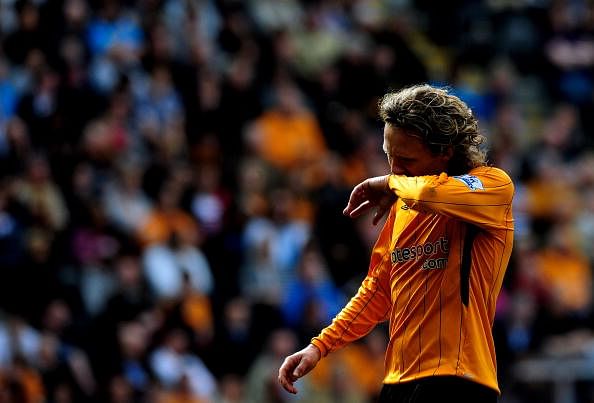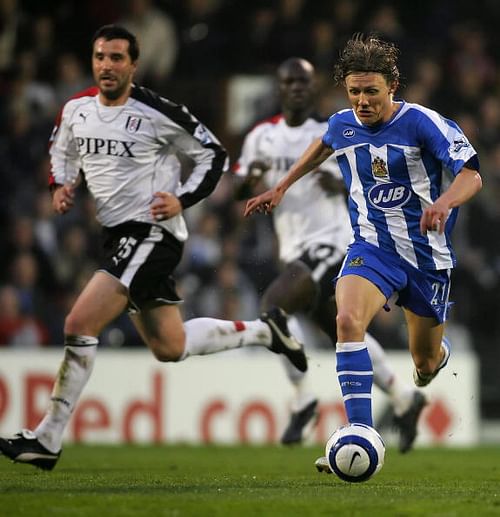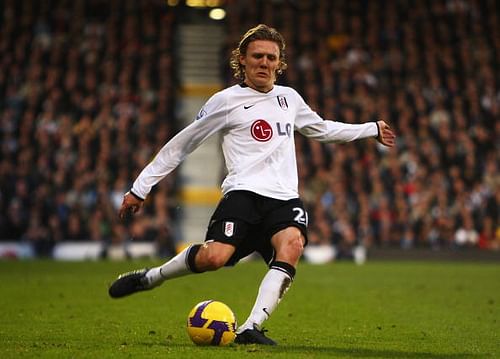
Jimmy Bullard - The hero he could never be

A decent midfield player on his day, Jimmy Bullard never received the kind of adulation he and his fans hoped for. A playmaker coupled with maverick antics, any set of fans love to have such a player in their team provided he’s not a Balotelli. He could have achieved greatness, but for his chronic injuries which ruined his career.
Having made his reputation at Gravesend & Northfleet at just 20 years of age, where he scored a decent 7 goals in 30 appearances, he was shipped off to the club he supported as a child – West Ham United. This was probably the mistake most young players do, as he failed to make a single appearance in the two subsequent seasons that followed under Harry Redknapp. A move to Peterborough United in the second division of English Football followed and this was where he actually built his reputation as a creative mainstay of the team, making 66 appearances and scoring 11 goals in the process.
More of a provider than a scorer, he was moving into the prime of his career, having been an average player so far but looking more than likely to be a success in the Premiership. And here is when Wigan signed him up for a measly £275,000. The next season, in 2003-04, was spent playing in the Championship where he was an important part of the squad that gained promotion to the Premiership. It was here that they also reached the League Cup final, which they lost to the eventual winners Manchester United.

As it turned out, the move to the Lactics proved to be the first and last successful move for him as injuries restricted his planned stay in the top flight of English football. A move to Fulham followed, who triggered the release clause in his contract by spending a reported £2.5 million for his services. Fulham, at that time, had a regular presence in the Premiership for 5 years, having been promoted in 2001, and this was supposed to be Bullard’s breakthrough move. His early life in London had a flying start when he curled the 26 yard free-kick against Sheffield United, and it was after that game that Fulham Manager Chris Coleman hailed Bullard as the ‘best money they ever spent’. But as fate would have it, Bullard’s dream move turned into a nightmare just five months into his Fulham career, when he was ruled out for 9 months with cruciate ligament damage.

With an aim of October 2007 comeback delayed, he eventually made his next appearance in January 2008, coming off the bench to play against West Ham United. Although he replicated his top form in the remaining months of the season, thereby saving Fulham from relegation, he wasn’t given the security of a long term contract which he desired. An eventual move to Hull City followed in January 2009, with a reported £5 million being paid by the Tigers; the London club were happy to let him go, making a healthy profit for his injury plagued 3 seasons, a deal any club would be proud of.
He made is Hull debut in January 2009, and yet again injured his knee, the very same which had kept him out for more than a year at Fulham. He made his comeback months later in the league but clearly, age had caught up, just like his knee injury. Few appearances followed with even fewer goals, one of which was the penalty against Manchester City that saw him famously imitate Phil Brown’s on- pitch team talk as his celebration. The failure to score a penalty in the final game of the season, which they needed to win to avoid relegation, saw fans lose patience with him and he was subsequently made available on loan. Although dubbed as what could be the final move of his career to Celtic, the deal eventually fell through due to high wage demands by the maverick play maker. He stayed on for another season at Hull, before leaving for Ispwich in January 2011. A short term move to MK Dons was his last, as he finally gave up hope on his much battered body.
With a career that ended much before it actually took off, Bullard had immense potential with those trademark defence splitting passes, which made him a treat to watch. He was a player with an ever smiling face and crazy antics on field, a la Ronaldinho (in a different mould of course). Only if his football could do all the smiling; the possibilities to ‘what could have been’, are endless.